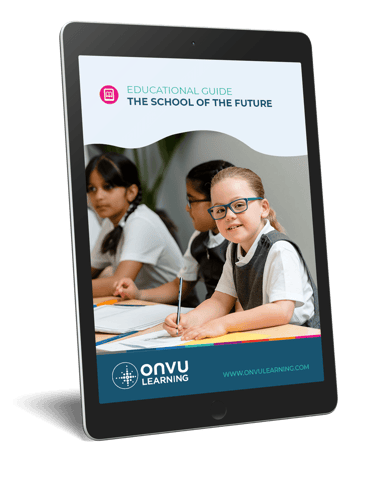- Blogs
- 2 Minute Read



The COVID pandemic has had a huge impact on teaching and learning in schools around the world. We’ve been talking to partner schools to find out how they are responding and their innovations and ideas to share. We’ve written blogs for trainee teachers, classroom teachers and school leaders and governors.
This final blog in the series looks at how those mentoring teachers can move forward despite the current restrictions. As well as talking to schools, this also draws on many of the conversations that took place at the recent UCET conference which, although virtual, brought together hundreds of universities and other initial teacher training providers.
Here are our suggestions for all schools with trainees and who may be looking to take on trainee teachers in the New Year.
1. Help your trainees find their way around your school
One of the biggest casualties of the pandemic has been the freedom for trainees to move around a school, following students or teachers for example. There is also limited opportunity to spend time with a range of staff. We’ve seen schools compensate for this in a number of ways, for example using the ‘virtual tours’ that many schools have now created to help trainees find their way around and arranging pre-visit remote calls with a wide range of teachers and support staff.
2. Focus on what can be done at the moment
There are some activities that aren’t allowed at the moment in many schools – such as practical work in Science or Technology – and these obviously can’t be done by trainees at the moment. Experienced teachers we’ve spoken to are also finding that some common teaching practices are harder than others, for example group research projects that rely on sharing equipment or visiting ICT rooms. In some cases, there are innovative technology-based solutions, but it would make sense for a new teacher to focus first on activities that work best with individuals. This might mean changing the order in which trainees themselves learn – perhaps focusing on skills such as delivering clear explanations first.
3. Explore the opportunities of remote meetings
Remote mentoring became a necessity at the start of the pandemic – but more and more schools and teacher training organisations are introducing innovations that would not have been possible earlier. For example, mentors are bringing mentees together in small lesson study groups or bringing other expert members of staff into discussions. Meetings can also take place at more flexible times, as mentors don’t have to travel long distances at the start or end of the day.
4. Keep a record of what works now for the future
With positive news about vaccines it may be that next year will have less need for remote working. However, we’re already seeing schools noting what they have learned and making changes – one school leader recently posted about his conversion to ‘remote parent evenings’ on social media.
In a similar way, training providers could see significant savings on travel time and cost by making some meetings virtual (in his recently revised book ‘Classroom Observation’, Professor Matt O’Leary reveals that one university spent £600,000 per year on this!).
5. Use remote lesson observation if possible
We’ve worked for a while to enable schools to share classroom video footage outside the school – and seen tremendous benefits. These include a reduction in disruption to teaching, mentors and mentees being able to watch video together and discuss and replay actual incidents, and mentees coming to an early understanding of how to self-reflect on their own lessons. A range of case studies showing how remote mentoring can work can be found on our website here.

The School of the Future Guide is aimed at helping school leaders and teachers make informed choices when designing the learning environments of the future using existing and upcoming technologies, as they seek to prepare children for the rest of the 21st century – the result is a more efficient and competitive school.
KEEP IN TOUCH WITH ONVU LEARNING AND RECEIVE THE LATEST NEWS ON EDTECH, LESSON OBSERVATION, AND TEACHER TRAINING AND DEVELOPMENT.